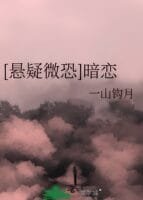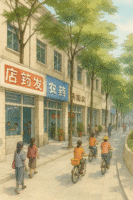Farm System C69
by MarineTLChapter 69
The random mystery box was a silver container about the size of a palm. Qin Yun studied it carefully, then tapped “Use” under the watchful eyes of the crowd. The silver box transformed into a green Christmas tree, its branches covered in all sorts of oddly shaped leaves. Each leaf was curled up, and when peeled open, revealed seeds the size of grains.
Song Yueshan looked at the leaf near the bottom. “Looks like tall fescue?”
Tall fescue was a type of forage grass, available in both ornamental and pasture varieties. It was the most common pasture grass in Longxia—used in parks, school fields, and more. Since the system updated its forage database, the system’s grasses had closely resembled tall fescue, which was also the focus of their current research.
“This one’s ryegrass.”
“And here’s corn grass, king bamboo grass, sweet elephant grass…”
…
As Song Yueshan moved, the other researchers stepped forward eagerly. There were nearly a hundred different leaves on the tree, each one containing seeds of a different forage species.
Everyone stared at the tree, instantly reminded of the Hope Tree’s stage reward: the Algae Tree. This was a lower-tier version of the Algae Tree, featuring 120 types of forage grasses. Though the variety was limited, all were common in Longxia and served as staple feed for livestock and poultry.
“We’ve got research samples!”
“Plenty of samples!”
…
The researchers were brimming with excitement.
Amid the flurry of photos and observations, a young man stood staring at the forage tree, eyes red. “This is good,” he said softly.
His name was Ba Mu, a graduate of Jinghe Agricultural University. Thanks to his strong academic performance, he had joined the Longxia Agricultural Research Institute right after graduation. His family was from Hazha’er Township in Meng Province, where they raised twenty head of cattle. Every winter and summer break, he loved lying on the back of a cow, basking in the sun. Wind blowing across the grasslands, cattle and sheep grazing—that was the most peaceful time of his year.
At the end of last year, Harma swept across all of Meng Province. When he called home, his family had reassured him, saying everything was fine and he should focus on his work.
Seeing that no one was missing and nothing seemed wrong, Ba Mu didn’t think much of it. But when he went home last month on leave, he found that while the people were fine, all thirty acres of pasture had degraded.
The grass was dead. Meng Province was no longer suitable for grazing. Forage was the primary food source for cattle, sheep, and horses. With the pasture gone, many of the animals had fallen ill from malnutrition. His family raised beef cattle, so they were still managing, but other herders weren’t so lucky.
Now, 90% of Hazha’er’s dairy and beef enterprises had shut down. Massive layoffs followed. Though the government had launched employment programs in older urban areas, these people had lived their whole lives on the grasslands—this was a heartbreaking transition. That trip home had shaken Ba Mu deeply. He wanted to develop forage grass resistant to Acid Rain, so his family could raise cattle again, so the grasslands could turn green once more, so the men from neighboring villages could ride their horses freely again…
He was just an ordinary researcher, mostly doing support work, but now, seeing the progress on forage grass, his nose stung with emotion.
Song Yueshan noticed him and teased with a smile, “Hey, big guy, what are you crying about?”
“Just a little overwhelmed,” Ba Mu said, his voice catching. He hadn’t been crying before, but now that she asked, he choked up.
Song Yueshan: …
“My family hasn’t bought meat in two months. With this much forage, if we can develop it all, we won’t have to worry about feed anymore.”
“We’ll all be able to eat meat again, and we won’t have to rely on imports for feed.”
…
The researchers looked at the forage tree, imagining a future where the meat and poultry markets returned to normal.
“You guys are something else,” Liu Wensheng chuckled at their reactions.
Research work demanded both mental and physical stamina. To support the team’s health, the farm had a professional nutrition team. Still, with so many projects and tight schedules, everyone often worked through the day and night without eating. Even the government-supplied meat and eggs often went untouched.
Seeing everyone in high spirits, Liu Wensheng decided to give them the night off and host a bonfire party.
“Things are going well now. Do we really need a party?”
The researchers’ first instinct was to decline. With the forage tree now available, they wanted to spend more time studying it.
“This is a group activity. Attendance is mandatory.”
With that, Liu Wensheng began organizing the evening’s event.
Over the next three hours, he notified every department. Aside from those on duty, all farm personnel were required to attend. This would be the farm’s first large-scale group activity. Once the invitations were sent, he instructed the nutrition team to prepare. To make the event feel special, the logistics team went to Lushui Town to order cakes and flower garlands, doing their best to make the evening meaningful.
At 8 p.m., the researchers arrived at the designated spot with blankets and jackets. The location was on the southern side of the Tulou, surrounded by lush pasture. They laid their blankets on the grass, and as a breeze drifted by, a sense of serenity settled over them.
“Which team are you with?”
“Biology.”
“I’m in the Tech Group.”
…
The researchers introduced themselves. The farm had 320 full-time employees and 1,300 part-time workers. Though they all worked on the same farm, they belonged to different departments. This was the first time in nearly a year that they were formally introducing themselves to each other.
After some chatting, Liu Wensheng took the stage. “Thank you all for coming to tonight’s bonfire party…”
He gave a speech summarizing all the research achievements to date and reminded everyone to take care of their health—after all, their bodies were the foundation of their work.
Five minutes later, the nutrition team wheeled out a barbecue buffet. Open flames were prohibited on the farm, so the event relied on ambient lighting and self-serve food. At first, the researchers were a bit reserved, but the festive atmosphere gradually loosened them up.
“We’ve been too cooped up. We really need more events like this,” Liu Wensheng said with a sigh from the southern side of the bonfire.
“Absolutely,” Qin Yun replied, pouring himself a glass of orange juice. Longxia was now self-sufficient in grains and vegetables—everything was moving in the right direction.
At 10 p.m., Liu Wensheng announced the end of the event.
“Your tech group’s working on Acid Rain filtration? I’ll drop by in a few days.”
“I’m usually in the rice fields. Let’s chat sometime.”
…
The researchers said their goodbyes.
By 10:30, just when Liu Wensheng thought everyone had gone to bed, lights flickered on in the various labs. Many researchers were already back at work, chewing on bread as they analyzed the day’s data.
Liu Wensheng considered ordering everyone to rest, but in the end, he let it go. They were racing against time, and the day’s work wasn’t finished… He couldn’t sleep either. He took a walk around the farm, then returned to the Tulou to handle paperwork.
The farm was the same as before, but after the bonfire party, it now carried a new sense of unity and drive.
…
[March 28: The Agricultural Research Institute successfully develops Acid Rain-resistant tall fescue. This is Longxia’s first breakthrough in Acid Rain forage grass…]
Over the next two days, Longxia’s media covered the progress of Acid Rain Seeds. The new forage grass was expected to be cultivated and available by early May.
…
“We’ve got forage now! Does that mean we can eat meat again?!”
“Boiled beef slices and spicy chicken platters—I’ve been craving them!”
“Pork’s been 98 yuan a kilo here. Finally, I can satisfy my cravings…”
…
The moment the Longxia News aired, people across the country were ecstatic. Forage grass was rich in protein and fiber—something regular feed couldn’t replace. Just two weeks ago, many economists had issued grim predictions: given current global consumption rates, frozen meat supplies would drop by 65% by early spring next year. At that point, the fragile peace between humans and animals would collapse.
In fact, over the past six months, several provinces had already seen people heading into the mountains to hunt. It was only through strict government control that large-scale violence had been avoided. Humans needed meat. Without large-scale livestock farming, conflict between humans and animals would only intensify. Now, with forage grass available, people could raise chickens, ducks, pigs, and cattle again—and animals could survive on the grass too.
“It hasn’t been easy,” murmured some soft-hearted netizens, sharing the news again and again.
In the struggle for survival, if humanity truly ran out of meat, no one could control what people might do. But as decent human beings, they couldn’t bear to see animals suffer. Now, with the arrival of forage seeds, there was hope. The worst hadn’t come to pass!
“Big hearts to the Agricultural Research Institute!”
“Incredible work!”
…
The netizens might not have been experts, but their respect and admiration for the researchers was boundless.
“What time is it?”
“Two twenty.”
…
On the afternoon of April 5, at 2:20 p.m., while everyone was still discussing the tall fescue breakthrough, at Ma’er Seaport in Cybera, Maike and a port official stood anxiously watching the sea.
A month ago, Longxia had released a 25-point strategy, pledging “food aid and technical assistance” to support crisis-stricken nations. This wasn’t just lip service—it was being put into action.
Cybera has limited arable land, but its marine industry is thriving. After nearly half a month of international negotiations, Longxia decided to invest in Cybera’s seafood sector, including seaweed filtration and salt refining plants. Maike, who once worked in Longxia, saw the new policy and, after discussing it with his family, decided to open a seaweed processing plant in Cybera.
This would not only help him resolve his own financial crisis but also provide jobs for some of the unemployed.
He didn’t see himself as someone with grand ideals—Cybera was simply too chaotic, and he wanted to do what he could.
It was now 2:20 PM, and he was waiting for representatives from Longxia’s interested enterprises.





![Good Baby [Quick Transmigration] Cover](https://marinetl.xyz/wp-content/uploads/2025/01/Picsart_25-04-16_22-55-55-418-133x200.jpg)




0 Comments